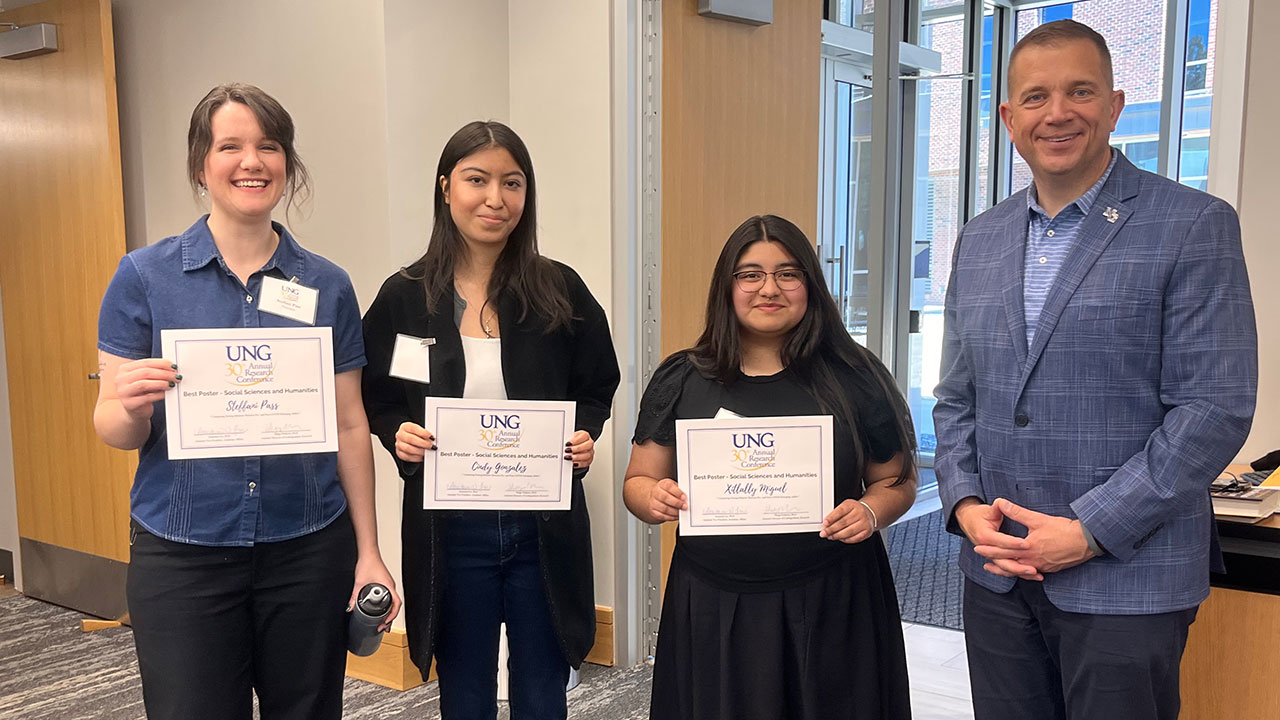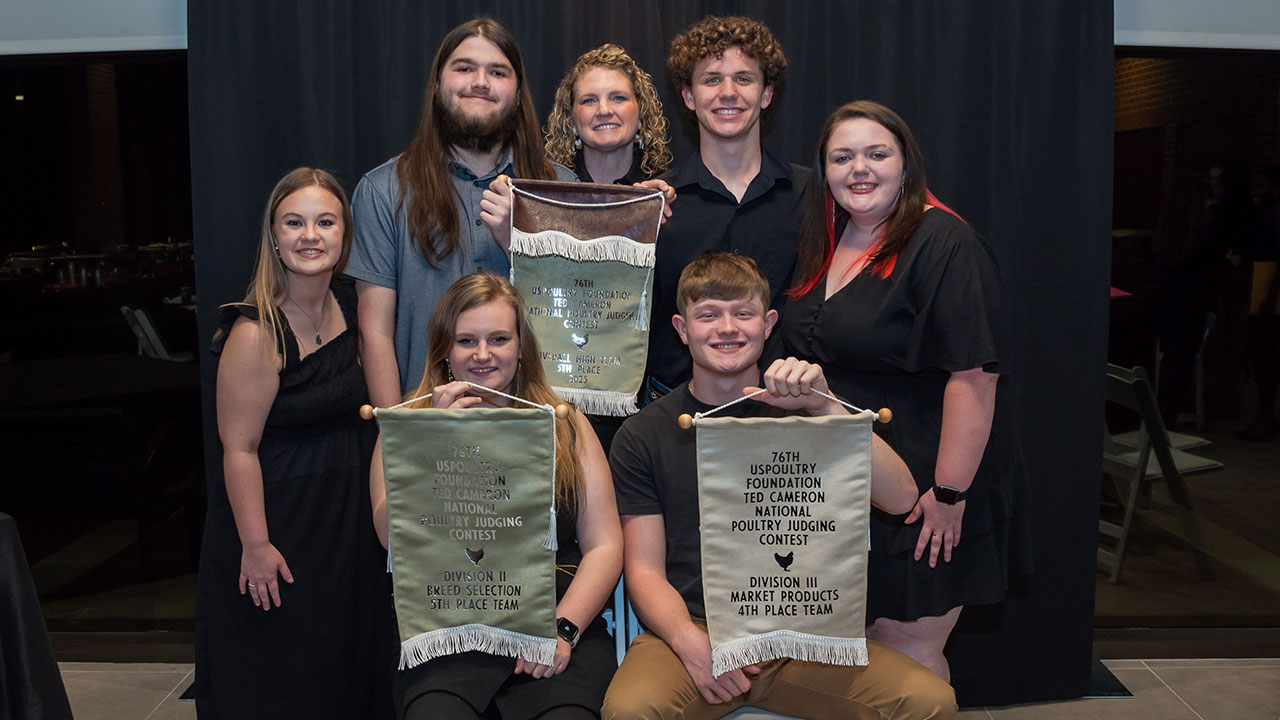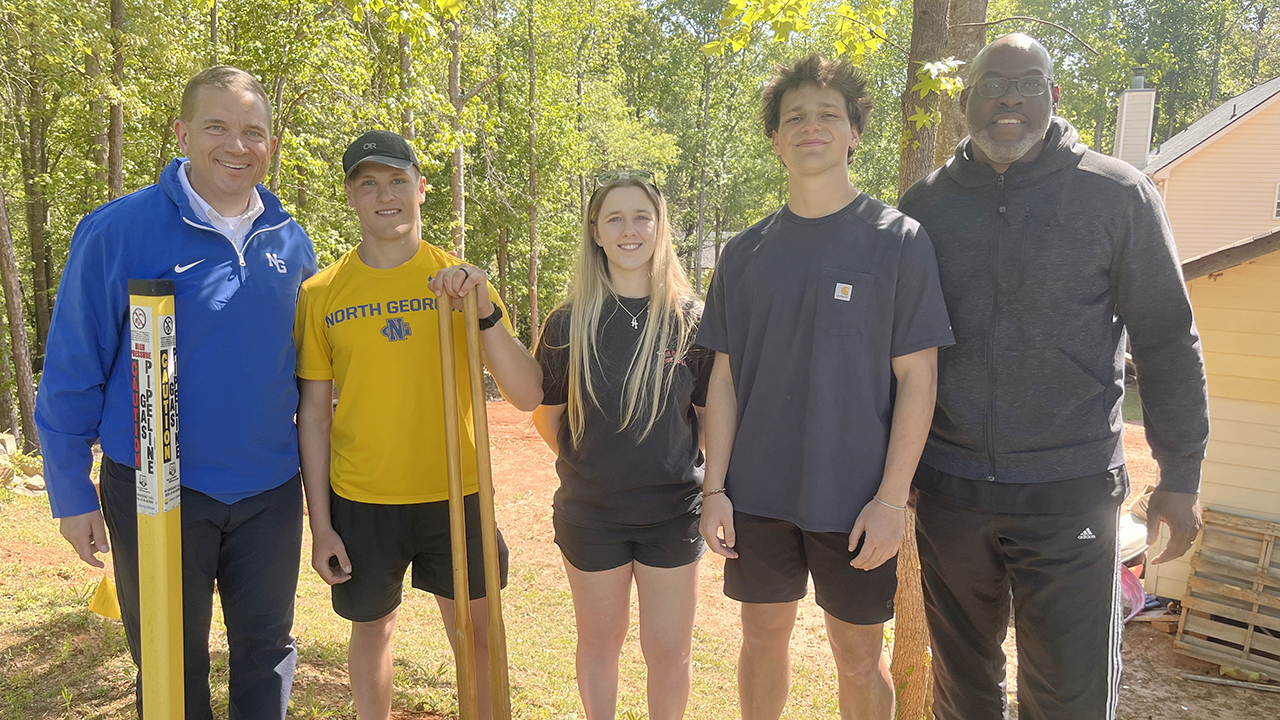Fresh vegetables from UNG's garden feed Lumpkin County students

Article By: Staff
As school nutrition director at Lumpkin County Schools, Julie Knight-Brown learned some surprising news about elementary school children.
"The little kids love radishes," Knight-Brown said. "One of the parents thanked the café manager at Long Branch Elementary for introducing her children to radishes. She said, 'They loved them.'"
Fresh radishes, tomatoes, onions, and an assortment of herbs were a few items the University of North Georgia (UNG) supplied the school system this summer and into the fall. The vegetables and herbs were grown and harvested from the gardens at the Historic Vickery House, which is the headquarters of the Appalachian Studies Center on UNG's Dahlonega Campus. The center is part of the College of Education and designated to study Georgia’s mountain region.
The fresh produce was delivered to Lumpkin County Schools and has been integrated into school lunches.
"We started in July and harvested on a weekly basis," said Dr. David Patterson, associate professor of biology who spearheaded the project.
Knight-Brown said some of the produce such as cherry tomatoes and radishes have been a "featured" vegetable at a school or offered as a side dish in the cafeteria. Other items such as onions were incorporated into other meals while herbs were used for their flavor.
A portion of the summer produce was frozen for future use, which helped the school's finances this academic year. Knight-Brown explained the school nutrition program's budget has suffered because of the COVID-19 pandemic. She said the donations from UNG's gardens happened at an optimal time.
"All school nutrition programs are facing the same financial dilemma," Knight-Brown said. "We will happily take any donated fresh produce."
Lumpkin County Schools is not the only beneficiary of the Hometown Harvest program. UNG students in need of service-learning hours can get their hands dirty in the gardens. Patterson said between five and 10 students helped harvest the produce this summer.
Two more students, Amelia Arthur and Zach Pilgrim, have been involved in a precision agriculture research project funded by UNG's Center for Undergraduate Research and Creative Activities (CURCA). The primary objective was to test the impact of a precision agriculture system in small-scale gardens as a means for increasing food production for students in need.
"They took the garden from seed to production," Patterson said. "They also collected the data, which we are analyzing now."
 |
|
Fresh produce from the gardens at the Vickery House and Appalachian Studies Center on UNG's Dahlonega Campus were delivered to Lumpkin County Schools and integrated into school lunches. |
In the meantime, the gardens have been turned to produce fall vegetables for Lumpkin County Schools. Leafy greens and broccoli seeds have been sown. The only missing element this fall is more volunteers.
"The gardens at the Vickery House have always been viewed as an heirloom garden," Patterson said. "But now we have determined how to integrate consistent food production with seed-saving techniques. Now we need more UNG and community involvement."
He said some volunteer opportunities could be as simple as watering the garden or turning over the compost. Pulling weeds may take a little more effort and knowledge, Patterson said.
"Some students may have trouble knowing the difference between an onion stem and a weed, but we are there to help," he said.
To help with the Hometown Harvest, contact Patterson at david.patterson@ung.edu or Knight-Brown at julie.knightbrown@lumpkinschools.com.



